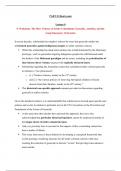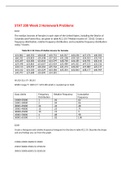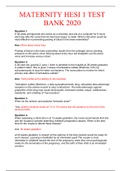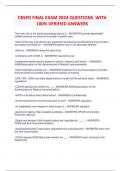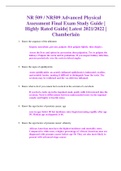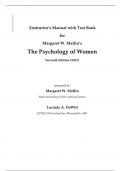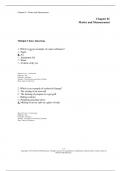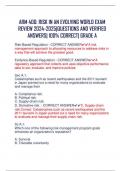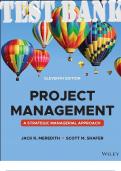Samenvatting
Summary Summaries and lectures notes for the final exam of Violence & security. Paradigms and debates (FY)
- Instelling
- Universiteit Van Amsterdam (UvA)
The document includes detailed summaries of all the readings + lecture slides and additional notes (lectures 8-10). NB: the document includes lectures 8-10, which is the material discussed after the midterm.
[Meer zien]
